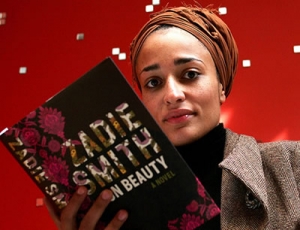Self-Expression in Writing

Smith said, “Don’t write about yourself. You’re not that interesting,” and “I express myself with my friends and my family. Novels are not about expressing yourself, they’re about something beautiful, funny, clever and organic. Self-expression? Go and ring a bell in the yard if you want to express yourself.”
Obviously, I don’t accept her advice, but that’s the difference between writing novels and blog posts. I aim to communicate my observations on energy, the environment and sustainability, in the hope that a few folks somewhere will find them to be of some value.
I also aspire to become a writer a tenth as good as Zadie Smith. If you haven’t read “White Teeth,” you’re in for a treat.

Thanks for the recommendation. I also do think that personal experience does have a significant place in communication. There was a columnist in NY who had a daily piece for years based upon supposedly a personal conversation or experience that had occurred within the last 24 hours. Again it is an extremely appropriate way to start a speech with a personal observation that is connected in time or place to the speech. Such observations can connect to a listener. But there is an art to conveying the personal experience without it being personal…
The contrast can offer guidance. Judicious use of personal experience are far from the all too common flaming ego. Jay Leno could have started off each piece about his garage with “I am really rich, I have so many cars in my garage, I am the biggest expert” But such “trumpeting” is more likely to suggest feelings of inadequacy. Rather than bring an audience in they tend to alienate.
There are those feminists who have pushed the idea that all gender identification is a learned behavior, more recently we are hearing that gender is a complete sliding scale and can’t be “fixed.” However when it comes to writing, particularly in technical pieces, I can almost always tell within a few lines the gender of the author. Some authors do take the perspective that “who I am” is far more important than “what I have to say.” Gender is very often a major part of this. I haven’t considered too carefully why, but I suspect it is in how they handle the personal perspective and how they handle personal connections.
Wisdom isn’t necessarily a friend of age. It is quite possible for someone quite young to exhibit personal wisdom. But an enemy of wisdom is certainly distraction. A study of rhetoric is mostly a study of all the various forms of distraction that would take us away from wise decisions. So I am not surprised that someone quite young would exhibit some natural wisdom. But I do wonder how they avoid the types of distractions that appeal to the young and curious as compared to the types of distractions that make the more experienced susceptible (often dealing with power and prestige.)